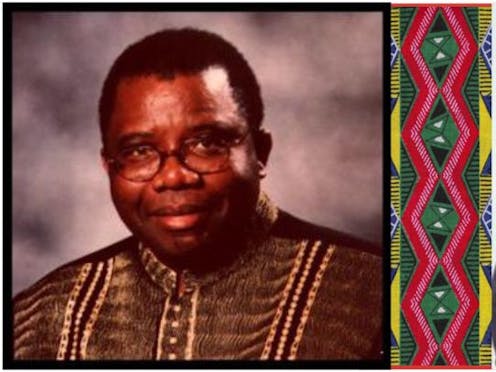
Professor Lovemore Mbigi, celebrated within the African management and psychology disciplines, died in Harare, Zimbabwe on 26 June 2023. He left a body of work that resonates on the continent.
Mbigi was over his career affiliated with several African and international universities. Notably, he contributed to the PhD programme at the National University of Science Technology in Zimbabwe. Academics have described him as an important African scholar whose work made an impact in management education.
In addition to his role in the academy, Mbigi was a consultant to business and an active contributor to how state-owned entities could be improved for better service delivery. His areas of expertise included strategy execution, transformation, leadership and diversity management.
I came to know Mbigi and his work when I was an aspiring organisational behaviour scholar. I observed through my reading of the literature that a lot of emphasis was placed on what would be termed western psychology. The influence of this western psychology would permeate through to consulting practice. In seeking a place where I belonged within my discipline, the work of Mbigi was a light in a dark tunnel. I appreciated him throughout my career phases and transitions, and have recommended his work as useful reading for the masters and PhD students I’ve supervised.
African concepts
Mbigi’s work challenged the dominance of “WEIRD” – western, educated, industrialised, rich and democratic – nations in knowledge production and dissemination. He reminded us as Africans that we should never leave behind that which was distinctively ours in favour of what could be termed modernity.
Mbigi brought African concepts and cultural practices to the academic and consulting realm. For example he saw the African philosophy of ubuntu as a basis of effective human resources management. In ubuntu, the emphasis is on fostering a sense of togetherness and using this shared togetherness to achieve objectives. At the core the management of people in organisations needs to espouse these tenets of ubuntu in achieving a competitive advantage.
Read more: Education in Zimbabwe should strive for inclusion -- how the philosophy of ubuntu can help
He also used concepts such as harambe from east Africa and nhimbe from southern Africa to inform talent management and organisational development practices. Both these “teamwork” practices in their contexts acknowledge the communal nature of African societies. Individual talent can be directed to solving community challenges through gathering together. Clear lines of authority exist around a goal but, importantly, there is a sense of togetherness in achieving this goal.
Read more: African philosophy needs to blossom. Being exclusionary won't help
Mbigi’s work has also been applied extensively to other fields of study, especially where people and the interaction of cultural systems are at play.
African management and leadership
Mbigi’s first book on African management, co-authored with Jenny Maree, was Ubuntu: The Spirit of African Transformation Management. In this work, value is placed on the role of African indigenous knowledge systems as cultural capital to assist managers within contemporary workplaces. Such knowledge systems, as viewed by Unesco, place value on the understandings, skills and philosophies developed by societies with long histories of interaction with their natural surroundings.
For Mbigi, turning to indigenous knowledge systems offered a perspective that could help address challenges faced in organisations. Such perspectives become useful in acknowledging diversity and using it for good.
His book The Spirit of African Leadership is an attempt to position the role of African leadership in the global arena, especially within modern management practice. Mbigi called for awareness of the reality that the African continent has a wealth of leadership knowledge. He emphasised that such leadership knowledge not only deserves equal attention globally: it has the potential to make a contribution universally, too.
Mbigi also wrote In Search of African Business Renaissance: An African Cultural Perspective, and Ubuntu: The African Dream in Management.
When I was an undergraduate student I encountered and drew on Mbigi’s work in two classes: organisational development and consulting psychology. In these classes, there was a need for theory and practice to be linked and balanced. I was impressed by Mbigi’s framing of cultural paradigms, especially those prevalent in African societies. I learned I could use such African cultural paradigms to inform not just my worldview but as a possible solution to individual and organisational challenges.
Read more: Work contracts are a complex web of social and cultural dynamics
Mbigi’s books on African leadership and ubuntu continue to be cited in scholarly outputs. His work in some cases is even seen as seminal and pioneering. It has featured in training and consulting practice and is an inspiration for African scholars and practitioners to make an impact in a “WEIRD” world. One of his students described him aptly as “generous, energetic and humorous”. These were attributes Mbigi used to get his message across not only as a teacher but also as a researcher and consultant in a serious world.
Willie Tafadzwa Chinyamurindi receives funding from the National Heritage Council and the National Research Foundation.
This article was originally published on The Conversation. Read the original article.







